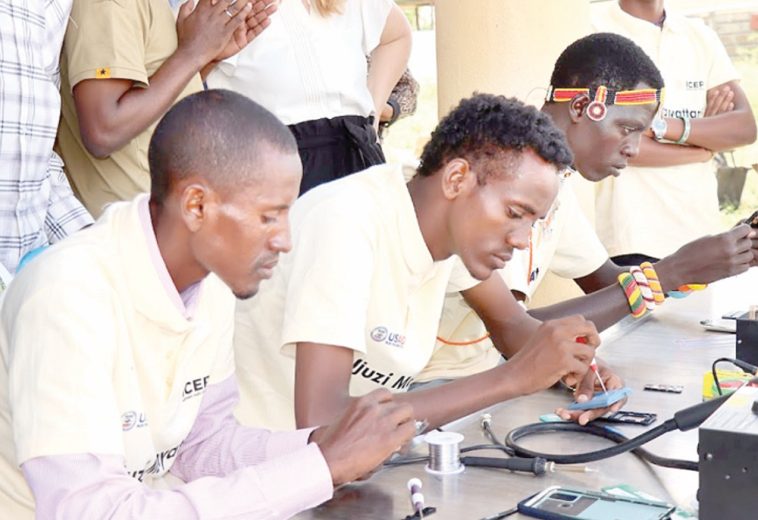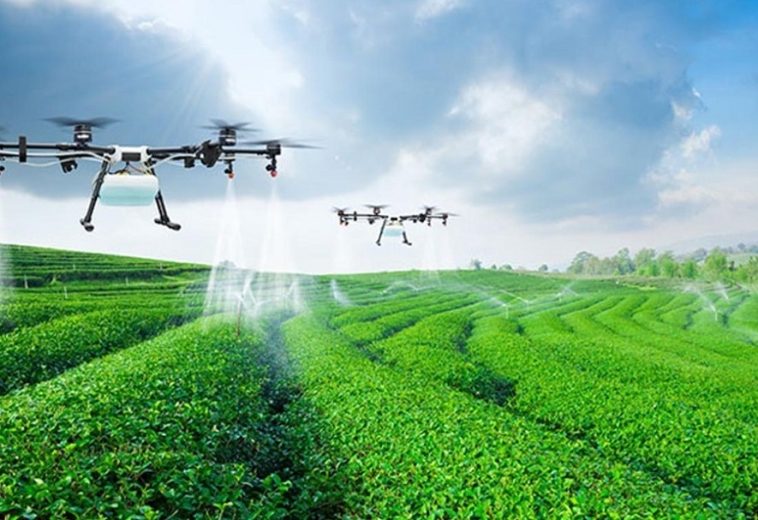Africa has significantly bolstered its public health education and pandemic preparedness through its experiences with crises such as HIV/AIDS, Ebola, and COVID-19. Recognising the link between health and climate change, African governments, in collaboration with the Africa Centres for Disease Control and Prevention (Africa CDC), have initiated awareness campaigns to prevent future outbreaks.
Between 1970 and 2019, Africa experienced 1,695 disasters, resulting in 731,747 fatalities and $5 billion in economic losses, according to the United Nations. Floods were the most frequent, accounting for 60% of all disasters, while droughts were the deadliest, responsible for 95% of the region’s fatalities, predominantly in Ethiopia, Mozambique, and Sudan.
Africa’s share of global disasters is significant, encompassing 15% of weather, climate, and water-related disasters, 35% of related deaths, yet only 1% of global economic losses.
Dr John Nkengasong, former Director of the Africa CDC, has emphasised the importance of establishing early warning systems to mitigate health and climate-related crises in Africa. He noted that the continent’s resilience against pandemics and climate threats relies on robust surveillance, rapid response mechanisms, and ongoing public health education.
African climate expert Dr Youba Sokona, Vice Chair of the Intergovernmental Panel on Climate Change (IPCC), highlighted the need to integrate climate risk assessments into health frameworks, stressing that early warnings are crucial in addressing climate-induced health crises, such as the spread of vector-borne diseases like malaria.
Public health education has become a cornerstone of Africa’s pandemic response strategy. The Africa CDC’s New Public Health Order, introduced during the COVID-19 pandemic, prioritised community-level engagement. This initiative underscored that successful public health interventions require local trust and understanding. For instance, grassroots campaigns on vaccination, hygiene practices, and social distancing were tailored to meet the needs of both rural and urban populations, often with the assistance of community health workers and local leaders.
Addressing the Intersection of Climate and Health
African nations have acknowledged that the increasing severity of climate-related challenges—such as droughts, floods, and heatwaves—could exacerbate public health crises. Climate change influences the spread of infectious diseases, food security, and access to clean water, all of which can worsen the impact of future pandemics.
Several African countries are proactively aligning their public health strategies with climate adaptation policies. This includes the African Union’s Agenda 2063, which recognises the role of climate change in health crises and encourages integrated health and climate responses, focusing on building resilient healthcare infrastructure in vulnerable areas.
The Africa CDC’s Pandemic Preparedness Framework also plays a pivotal role in this effort. By incorporating climate change data into disease surveillance systems, African countries aim to anticipate regions most at risk due to rising temperatures or shifting rainfall patterns, thus preempting health crises exacerbated by climate-driven conditions. This approach allows for preventative measures to reduce the impact of climate-related health issues.
Key Achievements in Raising Awareness
According to the World Health Organisation (WHO), African health authorities sent over 2.1 billion text messages during the COVID-19 pandemic. These initiatives were crucial in disseminating life-saving information, promoting hygiene measures, and informing people of vaccination drives. Such mobile-driven strategies were vital in controlling the virus’s spread, particularly in overcoming infrastructural challenges.
During the Ebola outbreaks, key strategies included community engagement, rapid response teams, and decentralised health systems, which allowed for quicker containment of the disease. Liberia, for instance, developed effective COVID-19 response strategies based on its previous experience with Ebola, enhancing contact tracing, quarantine measures, and public health education campaigns.
READ ALSO: Mental Health in Africa: Post-Pandemic Recovery Strategies
In South Africa, the Government Communication and Information System (GCIS) launched a comprehensive campaign to provide timely health information and reduce misinformation during the COVID-19 pandemic. Utilising SMS, WhatsApp, and social media platforms, the campaign achieved a wide reach, with over 90% of the population reporting an understanding of government directives. Ghana and Nigeria adopted similar strategies, leveraging text messages and radio broadcasts to reach remote populations. This approach ensured citizens had access to critical health information, helping to combat misinformation and promote public health.
The success of SMS-based campaigns during COVID-19 has shaped future public health strategies across the continent. African governments now recognise the power of digital communication in preparing for future pandemics. Climate-related health risks, such as the spread of vector-borne diseases, further underscore the need to integrate these digital tools into long-term health frameworks.
Building on lessons from COVID-19, African countries are proactively ensuring that digital health communication becomes a cornerstone of future public health campaigns. Through a combination of mobile technology, health education, and community outreach, Africa is now better equipped to respond to pandemics and climate-related health challenges.




